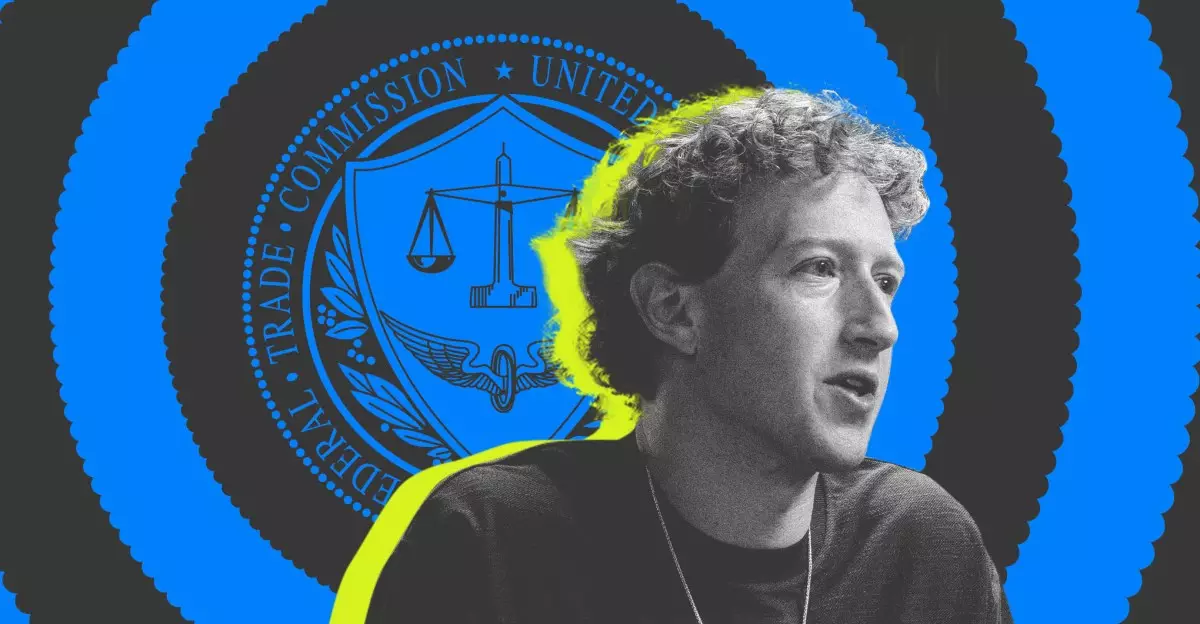The narrative around Meta, formerly known as Facebook, often revolves around its dominance in the social media landscape. However, recent proceedings in court highlight a divergent concept: how differently it could have unfolded. Lauren Feiner, a senior policy reporter for The Verge, has provided insightful coverage surrounding Meta’s journey. The very essence of this story lies in the decisions made by CEO Mark Zuckerberg, whose contemplation of various strategic paths could have dramatically altered the course of the tech giant’s existence.
During recent antitrust hearings, Zuckerberg disclosed the myriad of options he entertained, ranging from separating Instagram as an independent entity to dramatically revamping Facebook’s core functionalities. One particularly striking idea was the potential acquisition of Snapchat—an opportunity lost due to CEO Evan Spiegel’s refusal of a $6 billion offer. Such hindsight allows us to speculate the possible trajectories Meta could have pursued. Had Snapchat been integrated into its ecosystem, we might have witnessed a conglomerate brand positioning itself as an all-encompassing social media powerhouse, dominating both visual and messaging platforms.
Antitrust Concerns and Market Definitions
The current legal challenges posed by the Federal Trade Commission (FTC) paint a complex picture of competition within the tech industry. The agency is pressing allegations that suggest Meta has stifled competition by absorbing innovative rivals such as Instagram and WhatsApp. At the heart of the case is the FTC’s delineation of what constitutes personal social networking services, which facilitates a confrontational stance against the company. However, it appears that Meta is attempting to redefine the competitive landscape through its assertion of how “fluid” the market truly is.
Zuckerberg’s defense strategy is notably crafted around the notion that the social media environment is not as rigid as the FTC suggests. While the commission strives to label Meta a monopolistic entity, Zuckerberg identifies emerging and established competitors like TikTok, YouTube, and even iMessage. This highlights a fundamental debate in antitrust law over market definition—a determining factor shaping the legal outcomes but also a matter influencing public perception regarding fairness in technology competition.
The Insights from Testimonies
Zuckerberg’s testimonies are revealing not just for what they uncover about Meta’s operational strategies but also for the personal philosophies driving those strategies. His resistance to simple “yes” or “no” answers underscores a nuanced approach to understanding business decisions. For instance, when asked to differentiate Facebook’s traditional services against career-oriented platforms like LinkedIn, he emphasizes the overlaps rather than stark lines of demarcation. This perspective reflects a broader understanding of social media as an evolving, intertwined web of services rather than a strictly compartmentalized arena.
Moreover, the deliberations around ad load and user engagement bring an intriguing lens to the discussion. Zuckerberg even conjectured an era where Facebook might have gone so far as to implement a feed solely filled with advertisements, suggesting that this wasn’t merely about revenue but about recalibrating user experiences based on perceived quality. This interplay between user satisfaction and ad volume reveals a paradox: the continuous negotiation between profitability and maintaining user loyalty—a balancing act that remains a challenge for tech corporations today.
Lost Opportunities and Future Directions
As Zuckerberg reflects on past decisions, the underlying theme is one of anxiety over lost potential. The once-urgent desire to acquire Snap now looms as a cautionary tale of risk aversion and missed opportunities. His musings on wiping users’ friend lists to revive the joy of social connectivity highlights a deeper concern about maintaining relevance amidst fast-paced change within the tech landscape. This idea contrasts sharply with the often-predictable, algorithm-driven content delivery we see today.
Furthermore, the speculation around possibly spinning off Instagram exhibits a duality in Meta’s identity—pursuing growth while simultaneously grappling with the implications of fragmentation. Perhaps the most telling aspect of Zuckerberg’s reflections is a recognition that the competitive tech ecosystem requires agility, innovation, and an anticipatory mindset. Meta’s journey reflects an important lesson for any corporation: the path to future success is fraught with strategic dilemmas, where the choices made today might very well dictate the landscape of tomorrow.
In a world where tech companies constantly seek competitive edges, the ongoing conversation about Meta serves as a vital case study in understanding both the risks of expansion and the potential failures of fear-based decision-making. As the legal battle unfolds, it is evident that every choice, past and present, weaves a narrative that will influence the future of one of the world’s most influential companies.

